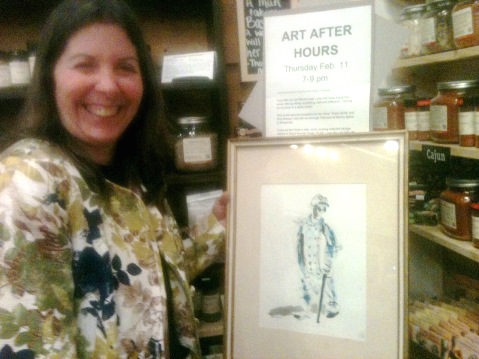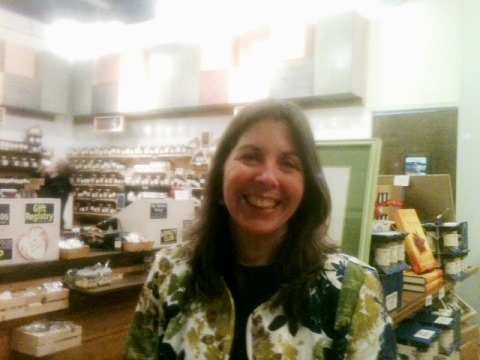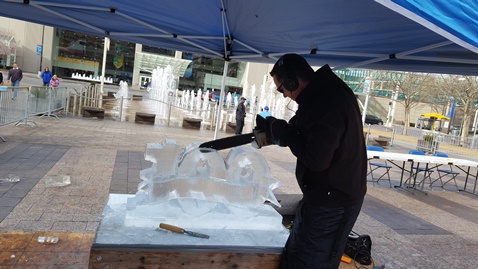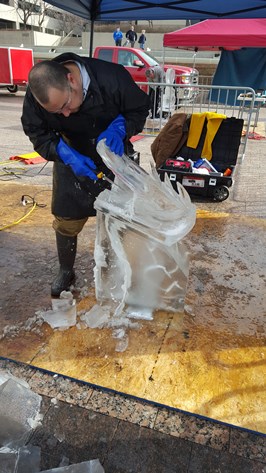Wichita State researcher says local governments face shrinking tax base
by Abigail Wilson, KMUW
A study released last month by Wichita State University found that Kansas’ sales tax pushes shoppers across state and county lines in order to save money on food. Kansas is one of only 14 states that includes groceries in the state sales tax.
Mike Kelly sits in his car in the parking lot of a Trader Joe’s. He pushes his tie to the side and pulls a yellow sticky note out of his shirt pocket. It’s a grocery list of items that his wife has asked him to buy.
“I’ve got a couple of things here: bell peppers, avocados, onions, bananas, spinach, chicken, egg and diced tomatoes. We’re having kind of a fajita night,” he said.
Kelly lives in Johnson County, but today he’s driven across state lines to shop. He does this two or three times a week.
He says the choice to drive a few blocks into Missouri is also a choice to save money. That’s because in Missouri the state food sales taxes are only 1.225 percent. In Kansas, the sales tax on food is the same as the general sales tax, which is more than five times Missouri’s rate: It’s 6.5 percent, and is one of the highest in the nation.
For Kelly, a civil litigation attorney in Kansas City, it’s a no-brainer to shop in Missouri.
“For me, it’s just as convenient,” he says. “I mean, without changing the street I’m on, I can go to a grocery store in Missouri or I can go three blocks down the road and go to a grocery store in Kansas. So, I mean, the net savings is all complete benefit.”
And he isn’t the only one who has realized that benefit. The WSU study found that as states cut income taxes, like Kansas has done, sales taxes become the focus for revenues.
Arwiphawee Srithongrung, an associate professor from the Hugo Wall School of Public Affairs at WSU, wrote the study, which uses data from 2012 and 2013.
Srithongrung said the findings are basically human nature: People are going to buy food in the area where the price is cheaper, whether it’s across a state line or a county line. It’s called tax avoidance — and when you add city and county taxes on top of the state sales taxes for various items, the costs are even higher.
Kelly’s groceries for fajita night cost $30.69 total: $28.86, plus $1.83 in sales tax. In comparison, if he would have driven the three blocks to a store in Johnson County and bought the same food at the same price, he would have paid $2.52 in taxes.
While it’s unlikely someone in central Kansas would drive to Missouri for groceries to save money, driving to the next county is a possibility.
The tax on Kelly’s same groceries in Wichita, including the variations in local taxes, would have been $2.16. In Hutchinson, in Reno County, the taxes would have been closer to $2.60.
While that may not seem like much, the differences can add up. If Kelly spent just $100 a week on groceries, in one year’s time he would save almost $320 by choosing to shop in Missouri rather than Kansas.
The WSU study, which also was released by KC Healthy Kids, shows that for every 1 percent increase in the tax rate, a person spends $100 a year buying groceries at a store somewhere other than home. And that’s just for food — not items like pliers and bug spray or clothing. That poses a problem for local governments.
“That means your tax base is shrinking and the total volume of revenue collections, especially for state and local government, is going to be smaller,” Srithongrung said.
According to Srithongrung, Kansas’ high state sales tax doesn’t leave room for city and county governments to be competitive. She says this is also a symptom of a recent movement toward cutting income taxes.
“It’s a trend for state governments, when they’re reducing income taxes or cutting income taxes, to rely more on sales tax to replace those income tax revenues.”
Using Srithongrung’s research, this trend of border hopping for groceries can be linked to a more than $345 million loss in food sales for Kansas during the data period and an overall decline in sales tax revenue for the state. And because the report doesn’t include last year’s sales tax increase, the effect of the revenue losses is likely much greater in recent months.
Last year two Wichita legislators introduced a bill to exempt fresh fruit and vegetables from the state sales tax. But it and other health-related tax changes face an uphill battle amid state budget shortfalls.
— Abigail Wilson is a reporter at KMUW in Wichita.
The nonprofit KHI News Service is an editorially independent initiative of the Kansas Health Institute and a partner in the Heartland Health Monitor reporting collaboration. All stories and photos may be republished at no cost with proper attribution and a link back to KHI.org when a story is reposted online.
– See more at http://www.khi.org/news/article/study-kansas-sales-tax-pushes-shoppers-across-state-lines#sthash.1ItZoVbQ.dpuf




